 Server
Colocation
Server
Colocation
 CDN
Network
CDN
Network
 Linux Cloud
Hosting
Linux Cloud
Hosting
 VMware Public
Cloud
VMware Public
Cloud
 Multi-Cloud
Hosting
Multi-Cloud
Hosting
 Cloud
Server Hosting
Cloud
Server Hosting
 Kubernetes
Kubernetes
 API Gateway
API Gateway

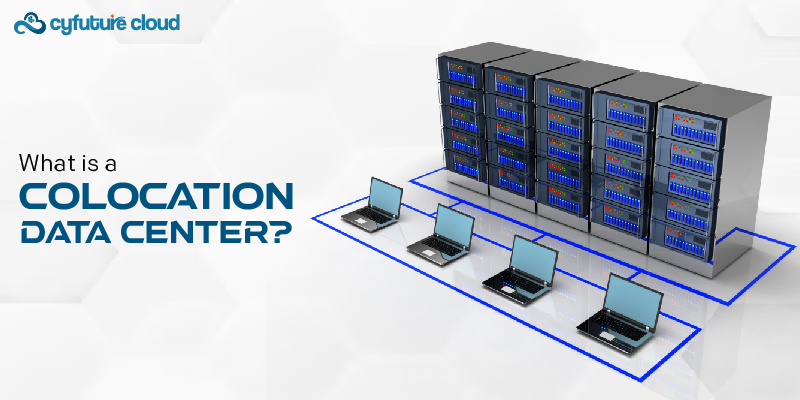
A colocation data center, commonly known as a "colo," offers space, power, cooling, and security for other companies' servers, storage, and networking equipment. Companies can lease space in these facilities for their IT infrastructure instead of managing their own data centers.
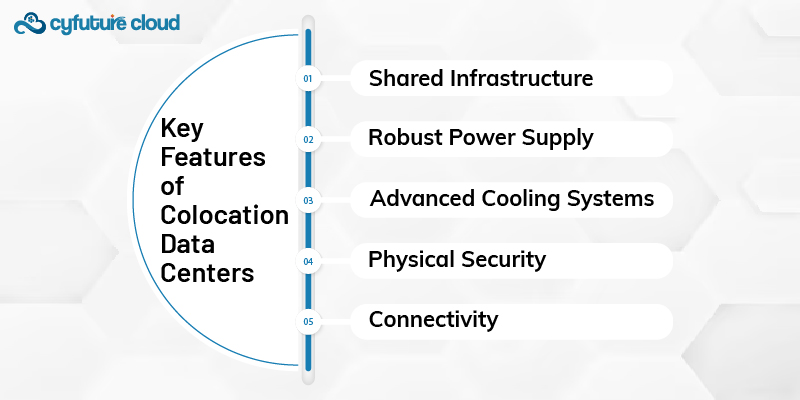
Colocation facilities offer a shared environment where multiple organizations can house private servers and networking equipment. Each client typically leases a specific amount of floor space, often in pre-defined enclosures like racks or cages.
Colos offers dependable power sources, such as backup generators and UPS. It guarantees uninterrupted operation in case of power failures.
These facilities utilize advanced cooling technologies to control the equipment's temperature and humidity.
Colocation facilities enforce strict security protocols, such as:
- Round-the-clock monitoring
- Biometric access systems
- Security staff
They provide fast, backup internet connections and are often carrier-neutral. Thus, it allows clients to select from various internet service providers.
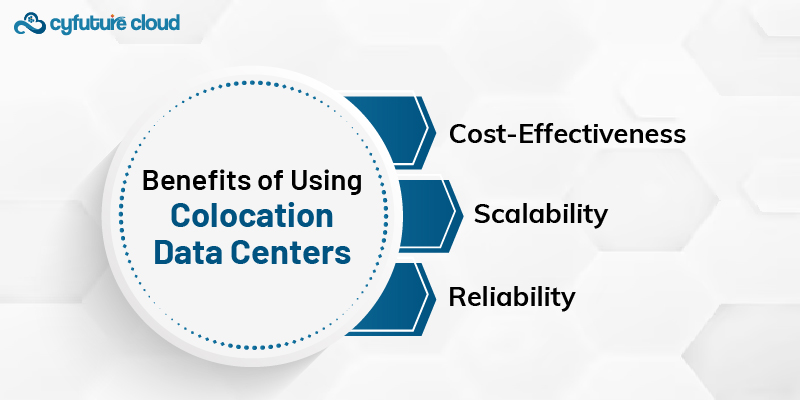
Businesses can save money on construction and operational expenses. Instead of building and managing their own data centers, with other tenants they can share the following:
- Infrastructure
- Power
- Cooling
- Security costs
Colocation allows a firm to scale up or down the size of its IT assets independently of the physical floor space that may be available to it.
Colocation facilities provide better uptime and dependability than most on-site data centers due to the:
- Redundant power
- Cooling
- Network systems
By contracting out data centre infrastructure management, companies can focus more on their primary business operations than IT infrastructure management.
Numerous sever colocation providers provide adherence to different industry standards and regulations. It can be advantageous for businesses in regulated sectors.
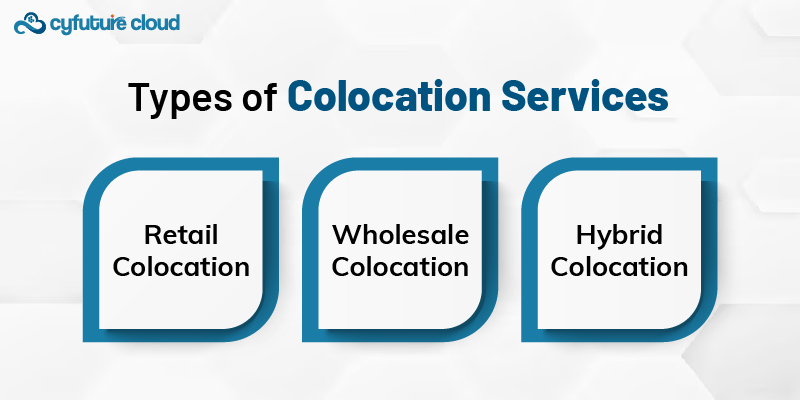
Suitable for small to medium-sized businesses, where clients rent smaller spaces, typically by the rack or cabinet.
Designed for larger enterprises, offering customized, dedicated data center spaces, often with separate mechanical and electrical infrastructure.
Combining colocation and cloud hosting services enables businesses to keep certain equipment on-site while utilizing resources from the cloud.
Colocation eliminates the requirement for a large initial investment in infrastructure and continuous maintenance expenses linked with on-site data centers.
Although cloud hosting services offer increased flexibility and scalability, colocation allows for greater hardware control and a more cost-effective option for businesses with consistent workloads.
The customer retains possession and management of their hardware and software in colocation. On the other hand, managed hosting providers handle the client's infrastructure.
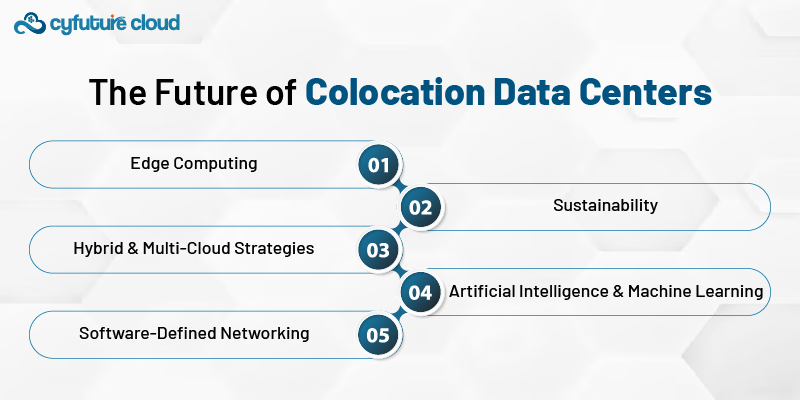
With the continued acceleration of digital transformation, there is an expectation that the demand for colocation services will increase. Various trends are influencing the future of colocation.
The increase in IoT and 5G led to the demand for edge data centers. It leads to colocation providers growing into smaller, more widespread centers.
The growing emphasis on environmental impact results in a greater use of energy-efficient designs and renewable energy sources in colocation facilities.
Colocation providers are now more frequently providing direct connections to leading cloud providers. It helps support hybrid and multi-cloud hosting architectures.
The increased use of AI & ML fuels the need for densely packed cloud computing spaces. Thankfully, colocation facilities are equipped to accommodate this requirement.
SDN is allowing colocation environments to have more flexible and efficient network management.
Colocation data centers provide a cost-effective, flexible option for businesses seeking to transfer their IT infrastructure management responsibilities. At the same time, clients can retain ownership of their hardware and software. It allows organizations to concentrate on their main strengths while guaranteeing that their essential IT systems are well-kept and easily accessible by offering a secure, dependable, and expandable environment. As technology evolves, colocation providers are adjusting to meet the changing needs of businesses, establishing themselves as important players in today's IT environment.

Let’s talk about the future, and make it happen!
By continuing to use and navigate this website, you are agreeing to the use of cookies.
Find out more


